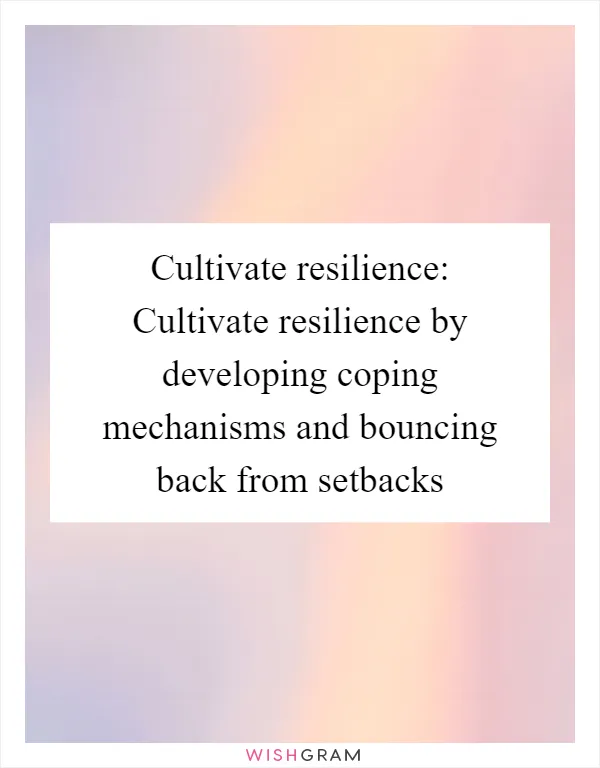Cultivate resilience: Cultivate resilience by developing coping mechanisms and bouncing back from setbacks
Cultivating resilience is an essential skill that can help us navigate through life's challenges and setbacks. It involves developing coping mechanisms and the ability to bounce back when things don't go as planned. Resilience is not about having an spirit, but rather about building the strength to adapt and recover from difficult situations.
Life is full of ups and downs, and setbacks are inevitable. Whether it's a failed project, a breakup, or a job loss, these experiences can leave us feeling defeated and discouraged. However, by cultivating resilience, we can learn to view setbacks as opportunities for growth and development.
One way to develop resilience is by building a support system. Surrounding ourselves with positive and supportive people can provide us with the encouragement and guidance we need during tough times. Sharing our struggles with trusted friends or family members can help us gain new perspectives and find solutions to our problems.
Another important aspect of resilience is developing effective coping mechanisms. These are strategies that help us manage stress and maintain a positive mindset. Coping mechanisms can vary from person to person, but some common ones include exercise, meditation, journaling, or engaging in hobbies that bring joy and relaxation.
Resilience also involves reframing our mindset. Instead of dwelling on the negative aspects of a setback, we can choose to focus on the lessons learned and the potential for growth. By shifting our perspective, we can find silver linings even in the most challenging situations.
It's important to remember that resilience is not something we are born with; it's a skill that can be developed over time. Like any skill, it requires practice and patience. Each setback we encounter provides an opportunity to strengthen our resilience muscles and become better equipped to handle future challenges.
When faced with a setback, it's crucial to allow ourselves to feel the emotions that arise. It's okay to be disappointed, frustrated, or even angry. Acknowledging these emotions is an important part of the healing process. However, it's equally important not to dwell on them for too long. Resilience involves acknowledging our emotions, but also finding ways to move forward and take positive action.
Lastly, cultivating resilience requires self-compassion. It's important to treat ourselves with kindness and understanding during difficult times. We should avoid self-blame and instead focus on self-care. Taking care of our physical and mental well-being is crucial for building resilience and bouncing back from setbacks.
